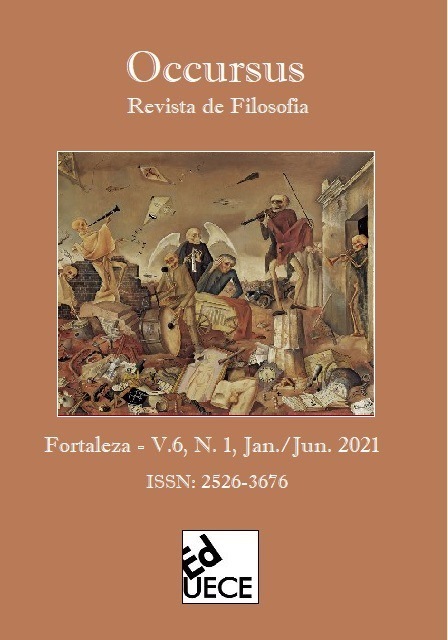As lições políticas de Sêneca e de Maquiavel: clemência ou crueldade como a melhor estratégia para perpetuação no poder
Palavras-chave:
Maquiavel. Sêneca. Filosofia. Política.Resumo
Em meio às incertezas que permeiam as decisões políticas de um governante, subsiste uma profunda desconfiança em relação à crença de que seja plausível estabelecer alguma estratégia política que garanta o êxito das suas ações. Fazer da crueldade um meio de impor autoridade é uma estratégia prolífica para fortalecê-lo? A conduta mais adequada seria pautar as decisões pela clemência e ser brando diante de eventuais ameaças? Certo é que ambas as estratégias envolvem sérios riscos, de abalar a confiança no soberano e torná-lo vulnerável a conspirações. O Tratado sobre a Clemência de Sêneca e O Príncipe de Maquiavel revelam visões conflitantes sobre o melhor caminho a ser trilhado pelo governante. Sêneca escreveu para o imperador romano Nero. Maquiavel dedicou a sua obra ao príncipe de Florença Lorenzo de Médici. Dois textos filosóficos desenvolvidos segundo diretrizes pedagógicas, cuja finalidade é o aprimoramento ético e intelectual do governante. Sêneca e Maquiavel revelam visões políticas discrepantes. Mas os longos séculos que separam os filósofos não obscurecem os elos que possibilitam compreender aspectos essenciais à natureza humana, a complexidade que envolve as relações políticas e a obstinação compartilhada entre os dois filósofos em traçar um caminho factível para o governante se perpetuar no poder.
Referências
AZAR, C. Maquiavel, o leão e a raposa. Rio de Janeiro: O que nos faz pensar, Nº 36, 2015.
CHUAQUI, T. La ética política de Maquiavelo: gloria, poder y los usos del mal. In: Estudios Públicos. Santiago, 79, invierno 2000, pp. 404-435.
EAGER, M. Seneca’s influence with Nero. Thesis submitted to the Oriel College, 2016.
GONÇALVES, A. T. Uma análise da obra De Clementia de Sêneca: a noção de virtude. In: Phoînix. Rio de Janeiro, 5, 1999, pp. 51-74.
LACHAPELLE, G. La colère et la peur dans le De clementia de Sénèque. In: Emerita, Revista de Lingüística y Filología Clásica. Madrid, LXXXV 1, 2017, pp. 73-93
MAQUIAVEL. O Príncipe. Tradução de Hingo Weber. Petrópolis: Editora Vozes, 2015.
MACHIAVELLI. Il Principe. Introduzione, nota bibliografica, cronologia e commento a cura de Giorgio Inglese. Torino: Einaudi Editore, 1995.
SENECA. Moral Essays: volume 1. John W. Basore. London and New York: Heinemann, 1928.
SÊNECA. Tratado sobre a clemência. Tradução de Ingeborg Braren. Petrópolis: Editora Vozes, 2013.
STRAUSS, L. Thoughts on Machiavelli. Illinois: The Free Press, 1958.
Downloads
Publicado
Como Citar
Edição
Seção
Licença
Copyright (c) 2024 Bruno Alonso

Este trabalho está licenciado sob uma licença Creative Commons Attribution 4.0 International License.




